Search Definitions
Browse Content (p. 130)

Definition
Ancient Persian Warfare
The ancient Persian military evolved from the earlier armed forces of the Medes which, in turn, developed from the warrior class of the indigenous people of the Iranian Plateau, the Aryan migrants (including the Persians) who later settled...
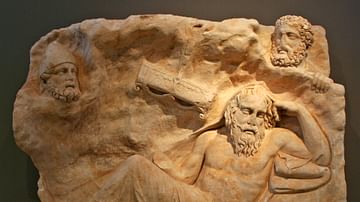
Definition
Philoctetes
The play Philoctetes was written by one of the greatest of the Greek tragedy playwrights, Sophocles, in 409 BCE. Philoctetes is one of his surviving plays whose exact production date can be determined and is set in the final year of the Trojan...
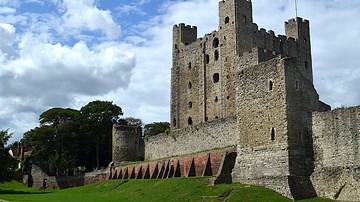
Definition
Rochester Castle
Rochester Castle, located in Kent, England, was first constructed shortly after 1066 CE by the Normans, was converted into stone between 1087 and 1089 CE, and then added to over subsequent centuries, notably between 1127 and 1136 CE, and...
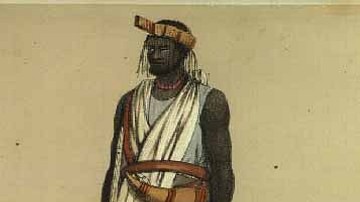
Definition
Wolof Empire
The Wolof (aka Jolof or Djolof) Empire was a state on the coast of West Africa, located between the Senegal and Gambia rivers, which thrived from the mid-14th to mid-16th century CE. The empire prospered on trade thanks to the two rivers...

Definition
Persepolis
Persepolis was the capital of the Persian Achaemenid Empire from the reign of Darius I (the Great, r. 522-486 BCE) until its destruction in 330 BCE. Its name comes from the Greek Perses-polis (Persian City), but the Persians knew it as Parsa...

Definition
Battle of Actium
The Battle of Actium (2 September 31 BCE, fought in the Ionian Sea off Actium, Greece) was the decisive engagement of the civil war fought between Octavian Caesar (l. 63-14 CE, later known as Augustus, r. 27 BCE - 14 CE) and the forces of...
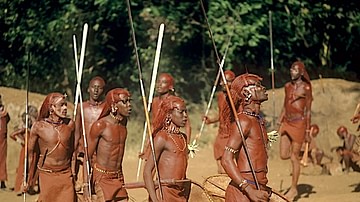
Definition
Maasai People
The Maasai (or Masai) people are an East African tribe who today principally occupy the territory of southern Kenya and northern Tanzania, and who speak the language of the same name. The Nilo-Saharan Maasai migrated southwards to that region...
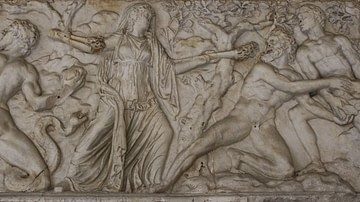
Definition
Leto
Leto is a Titan and the mother of the gods Apollo and Artemis in Greek mythology. Leto's twin children were the result of an amorous encounter with Zeus, and to avoid his wife Hera's wrath, the Titaness was obliged to give birth on the remote...
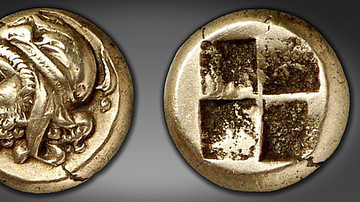
Definition
Ancient Persian Governors
The Achaemenid Persian Empire functioned as well as it did because of the efficient bureaucracy established by its founder Cyrus the Great (r. c. 550-530 BCE) which was administered through the satrapy system. A Persian governor of a province...

Definition
Amazon Women
In Greek mythology, the Amazons were a race of warlike women noted for their riding skills, courage, and pride, who lived at the outer limits of the known world, sometimes specifically mentioned as the city of Themiskyra on the Black Sea...